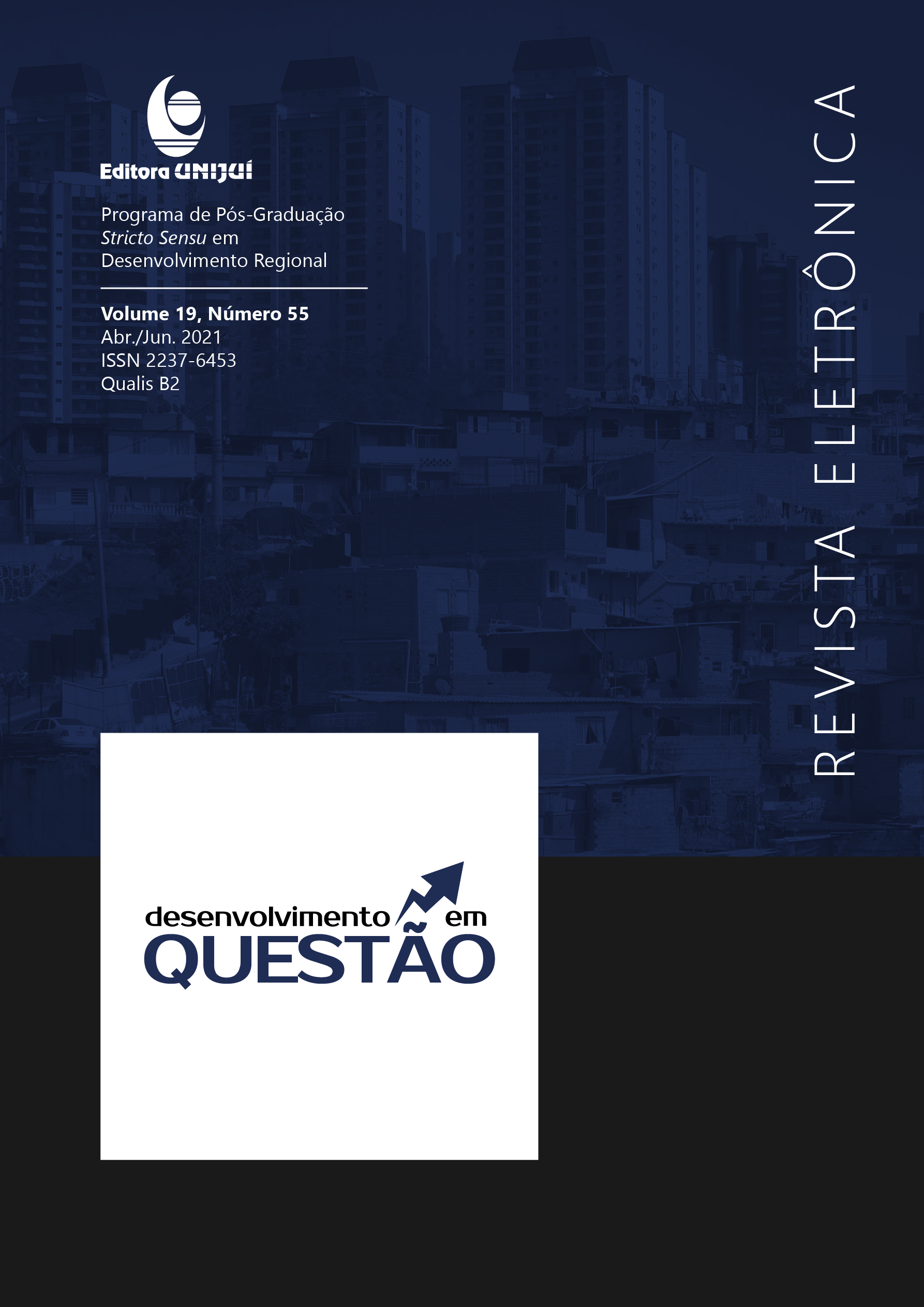Análise da Competitividade das Exportações de Minérios de Ferro Não Aglomerados e Aglomerados e seus Concentrados no Brasil: 2004 a 2018
ANALYSIS OF COMPETITIVENESS OF NON-AGGLOMERATED AND AGGLOMERATED IRON ORE EXPORTS AND THEIR CONCENTRATES IN BRAZIL: 2004 TO 2018
DOI:
https://doi.org/10.21527/2237-6453.2021.55.10537Palavras-chave:
Comércio internacional. Minérios de ferro. Vantagens comparativas reveladas. Constant-Market-Share.Resumo
O presente estudo se propõe avaliar o desempenho exportador de minérios do segmento de ferro não aglomerados e aglomerados e seus concentrados no Brasil e identificar as fontes de crescimento das exportações brasileiras desses produtos no período de 2004 a 2018. Para tal, utilizaram-se os índices de vantagem comparativa revelada, vantagem comparativa revelada simétrica, vantagem comparativa revelada de Vollrath e o modelo Constant-Market-Share, considerando neste último três subperíodos: 2004-2008; 2009-2013; e 2014-2018. Os resultados indicam que os estados de Minas Gerais e Pará apresentaram vantagem comparativa em relação ao Brasil para minérios de ferro no segmento não aglomerados em todo o período analisado. Quanto aos minérios de ferro aglomerados, verifica-se a presença de vantagem comparativa do estado do Espírito Santo em relação ao Brasil, porém não ocorre o mesmo para o estado de Minas Gerais. Em relação às fontes de crescimento, constata-se que o efeito crescimento do comércio mundial afetou negativamente as exportações de minérios ferrosos no terceiro subperíodo em relação ao segundo. Por seu turno, o efeito destino das exportações foi o que mais contribuiu quando comparado o terceiro subperíodo com o segundo, em ambos os segmentos, assim como o efeito competitividade, que apesar de baixo, mostrou-se positivo nos dois subperíodos para as commodities analisadas.
Downloads
Publicado
Como Citar
Edição
Seção
Licença
Ao publicar na Revista Desenvolvimento em Questão, os autores concordam com os seguintes termos:
Os trabalhos seguem a licença Creative Commons Atribuição 4.0 Internacional (CC BY 4.0), que permite:
Compartilhar — copiar e redistribuir o material em qualquer meio ou formato;
Adaptar — remixar, transformar e criar a partir do material para qualquer fim, inclusive comercial.
Essas permissões são irrevogáveis, desde que respeitados os seguintes termos:
Atribuição — Atribuição — os autores devem ser devidamente creditados, com link para a licença e indicação de eventuais alterações realizadas.
Sem restrições adicionais — não podem ser aplicadas condições legais ou tecnológicas que restrinjam o uso permitido pela licença.
Avisos:
A licença não se aplica a elementos em domínio público ou cobertos por exceções legais.
A licença não garante todos os direitos necessários para usos específicos (ex.: direitos de imagem, privacidade ou morais).
A revista não se responsabiliza pelas opiniões expressas nos artigos, que são de exclusiva responsabilidade dos autores. O Editor, com o apoio do Comitê Editorial, reserva-se o direito de sugerir ou solicitar modificações quando necessário.
Somente serão aceitos artigos científicos originais, com resultados de pesquisas de interesse que não tenham sido publicados nem submetidos simultaneamente a outro periódico com o mesmo objetivo.
A menção a marcas comerciais ou produtos específicos destina-se apenas à identificação, sem qualquer vínculo promocional por parte dos autores ou da revista.
Contrato de Licença (para artigos publicados a partir de 2025): Os autores mantêm os direitos autorais sobre seu artigo, e concedem a Revista Desenvolvimento em Questão o direito de primeira publicação.











